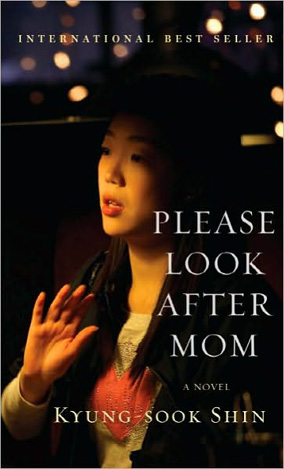Reading Questions for Please Look After Mom

Warning: May contain spoilers
Questions and Topics for Discussion
1. While second-person ("you") narration is an uncommon mode, it is used throughout the novel's first section (the tale of the daughter, Chi-hon) and third section (the tale of the husband). What is the effect of this choice? How does it reflect these characters' feelings about Mom? Why do you think Mom is the only character who tells her story in the first person?
2. What do we learn about the relationship between Chi-hon and her mother? What are the particular sources of tension or resentment between them? Why does Chi-hon say to her brother, "Maybe I'm being punished... " (p. 68)?
3. Why is it significant that Chi-hon is a successful writer, and how does her career affect her position in the family? What does this mean for her relationship to her mother, who is illiterate? How does it happen that her mother begins to treat Chi-hon like "a guest" when she visits home (p. 17)?
4. Mom's life has been defined by her relationships to others and the needs of her family. When her daughter asks her, "Did you like to cook?" how does Mom's reply summarize the divide between her own and her daughter's generations (p. 57)? How is the generational gap between you and your parents, and/or you and your children, at all similar to, or different from, this one?
5. What are some of the reasons for the special bond between the eldest son, Hyong-chol, and his mother?
6. Why does Hyong-chol feel that he has disappointed his mother? Why does she apologize to him when she brings Chi-hon to live with him (p. 89)? Why do you think he hasn't achieved his goals (p. 112)?
7. Why is food such a powerful element in Hyong-chol's memories of his mother?
8. How do you explain the fact that Mom has been seen by various people wearing blue plastic sandals, with her foot badly injured, although when she disappeared she was wearing low-heeled beige sandals (p. 64, 72, 73, 90, 91)? What do you make of the pharmacist's story of treating her wounded foot and calling the police (p. 99-101)? Does Mom's own narrative solve this mystery?
9. The Full Moon Harvest is a festival in which Koreans traditionally return to their family home to honor their ancestors. Hyong-chol reflects that people are now beginning to take holidays out of the country instead, saying, "Ancestors, I'll be back" (p. 92). What feelings do memories of their mother's preparations for the festival stir up in Chi-hon, Hyong-chol, and their father (p. 92-98)?
10. Weeks after his wife disappears, her husband discovers that for ten years she has been giving a substantial amount of money—money their children send her each month—to an orphanage where she has taken on many responsibilities (p. 116-21). How does the husband react to this and other surprising discoveries about her life?



